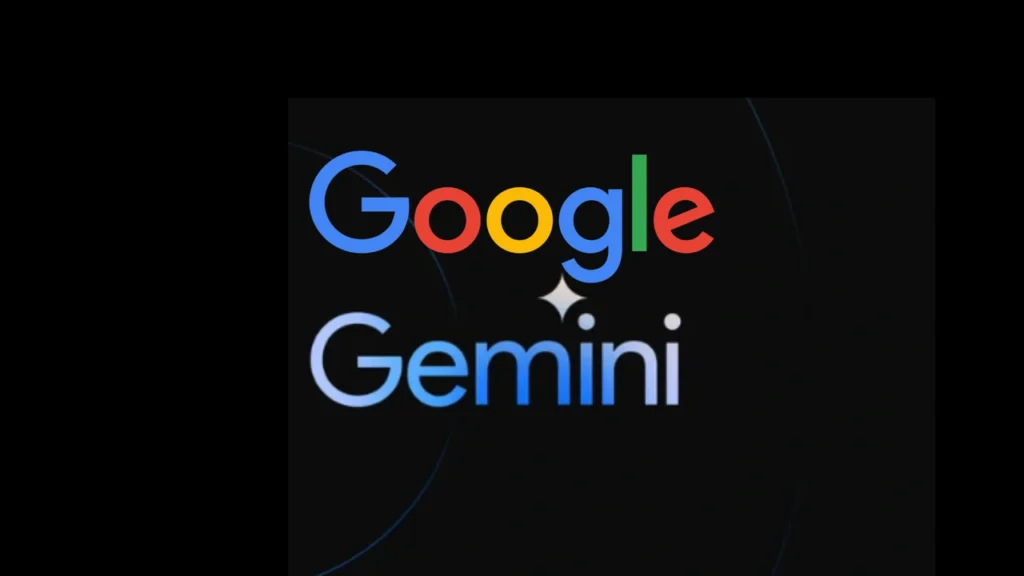Google Gemini : The New Face of AI, Formerly Known as Bard
Artificial Intelligence is evolving faster than ever, and one of the most significant names in the game is Google. You might have heard of Bard, Google’s AI chatbot, but did you know it’s now been rebranded as Google Gemini? Let’s dive into what this means, how it works, and why it’s a big deal—especially in a tech-savvy country like India.
What Exactly is Google Gemini?
If you’re curious about what Google Gemini (previously Bard) is, think of it as Google’s attempt to bring AI-powered conversations closer to human-like interaction. Google Gemini is more than just a chatbot—it’s a sophisticated AI system designed to understand and respond to natural language across different mediums like text, audio, code, and even video.
Gemini isn’t just a tool for Google Search; it’s a versatile AI that can be integrated into websites, messaging apps, or any application where you need realistic, natural-sounding responses. From answering user questions to generating content, Google Gemini does it all.
The Evolution: From Bard to Gemini
You might be wondering, why the name change from Bard to Gemini? The story goes back to February 2023, when Google first announced Bard. However, the launch wasn’t without its hiccups. A live demo gone wrong led to a $100 billion loss in market value for Google—yikes! Some say that the rebranding to Gemini in early 2024 was a way to move past those initial challenges and refocus on what really matters: advancing AI technology.
How Does Google Gemini Work?
Now, let’s talk about the tech behind Google Gemini. It all starts with training on a massive amount of data. This data is fed into a neural network that helps Gemini understand context, answer questions, and generate content.
Gemini uses a transformer model-based neural network architecture, which is a fancy way of saying it’s designed to process a lot of information across different types of data—whether it’s text, audio, or video. Google DeepMind, the brains behind Gemini, has optimized the system to handle lengthy and complex tasks, making it one of the most advanced AI models out there.
Why Should India Care About Google Gemini?
India is no stranger to technological advancements, and the country’s growing digital landscape makes it a prime market for AI innovations like Google Gemini. With its ability to process and generate content in over 45 languages, including Hindi, Tamil, and Bengali, Gemini is well-positioned to make a significant impact in India.
But it’s not just about language. Google Gemini’s potential applications in education, customer service, and even healthcare could be game-changing for a country as diverse and populous as India.
Safety First: Tackling Bias and Toxicity
AI models, no matter how advanced, aren’t without their challenges. One of the biggest concerns with AI is the risk of bias and the potential for generating harmful content. Google has taken extensive measures to ensure Gemini is as safe as possible. The model has undergone rigorous testing to minimize bias and toxicity, and Google has implemented safety nets to catch any problematic outputs before they reach users.
Different Models for Different Needs
Google Gemini isn’t a one-size-fits-all solution. Depending on the use case, different versions of Gemini are available. For instance, the Ultra model is designed for complex tasks, while the Pro model focuses on performance and scalability. Then there’s the Nano model, which is optimized for on-device applications, making it perfect for mobile use.
What About the Cost? Is Gemini Free?
When Bard was first introduced, it was available for free, and many assumed that Gemini would follow suit. While there is still a free version available, Google has introduced a paid tier for those who need more advanced features. The Ultra model can be accessed through the Gemini Advanced option for $20 per month, which also includes other perks like Google Workspace features and 2 TB of storage.
Limitations and Challenges
No AI is perfect, and Google Gemini is no exception. One of the limitations is the accuracy of the information it provides. Since AI models like Gemini learn from the data they’re trained on, there’s always a risk of outdated or incorrect information being used.
Another challenge is bias. Even though Google has made efforts to reduce bias, it’s nearly impossible to eliminate it entirely. This is something users need to be aware of, especially when relying on AI-generated content for important decisions.
Gemini vs. ChatGPT: The Showdown
You can’t talk about AI chatbots without mentioning ChatGPT, one of Gemini’s biggest competitors. Both are designed to generate conversational text using natural language processing, but there are some key differences.
ChatGPT has been integrated into several platforms, including Microsoft’s Bing, making it widely accessible. Gemini, on the other hand, is more closely tied to Google’s ecosystem. Another difference is how these models handle plagiarism. Neither Gemini nor ChatGPT has built-in plagiarism detection, so users have to rely on external tools to ensure content originality.
What’s Next for Google Gemini?
The AI landscape is constantly evolving, and Google Gemini is poised to be at the forefront of these changes. Google has already hinted at future updates, including improvements to image generation and expanded language capabilities. With the world increasingly leaning towards AI, Gemini could be a major player in shaping the future of human-computer interaction.
Read More: Munjya OTT Release: How to Watch the Latest Horror-Comedy Movie Online
Conclusion: A New Era for AI in India and Beyond
As AI continues to advance, tools like Google Gemini are set to redefine how we interact with technology. Whether it’s in education, business, or everyday life, the potential applications are endless—especially in a country like India, where the demand for innovative solutions is ever-growing. With Google’s commitment to safety and responsible AI development, Gemini is not just a rebranding of Bard but a leap forward in the AI revolution.










